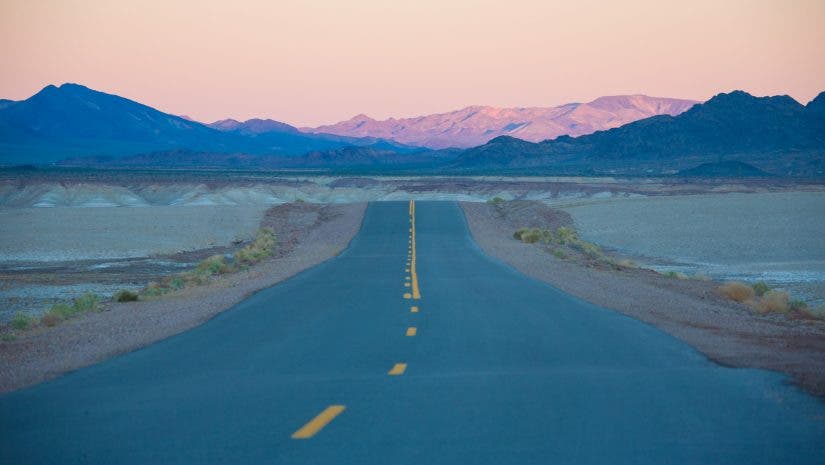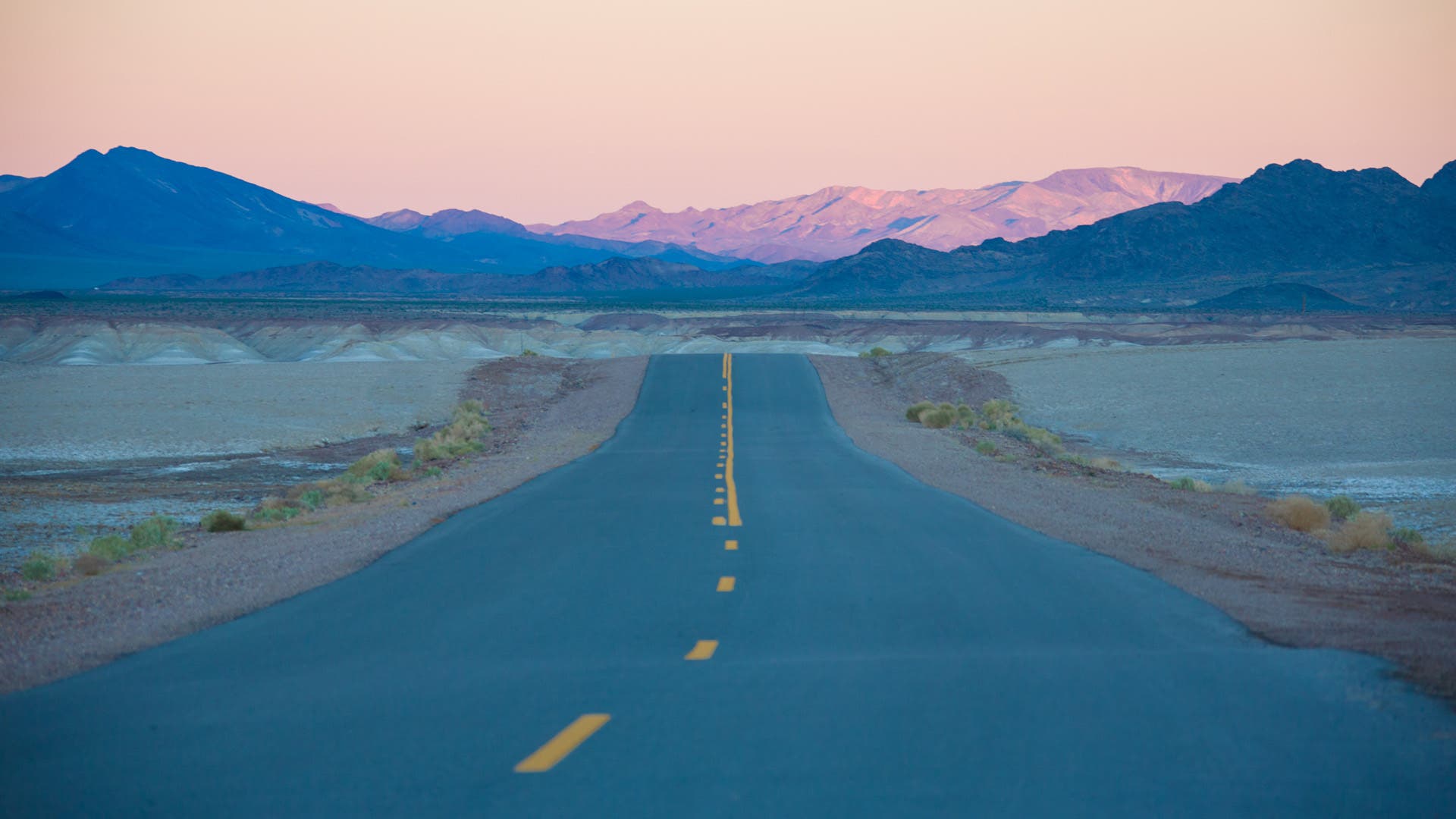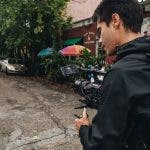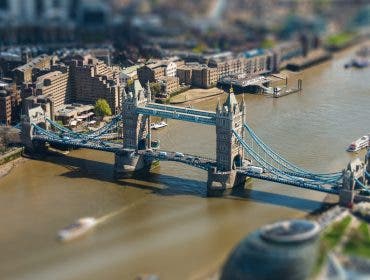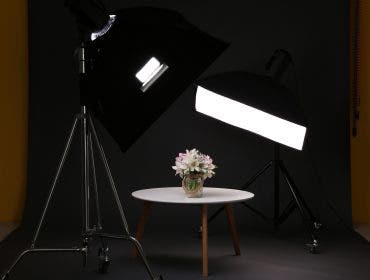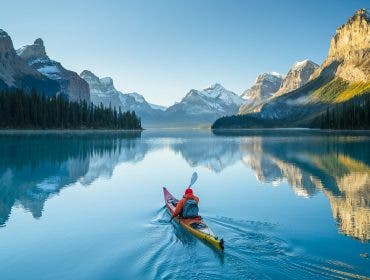A production van or RV is something that has long been used by Hollywood professionals and television news crews. With more and more people hitting the road and documenting the world around them, I thought I’d share some tips I’ve learned from living on the road and making films over the past decade.
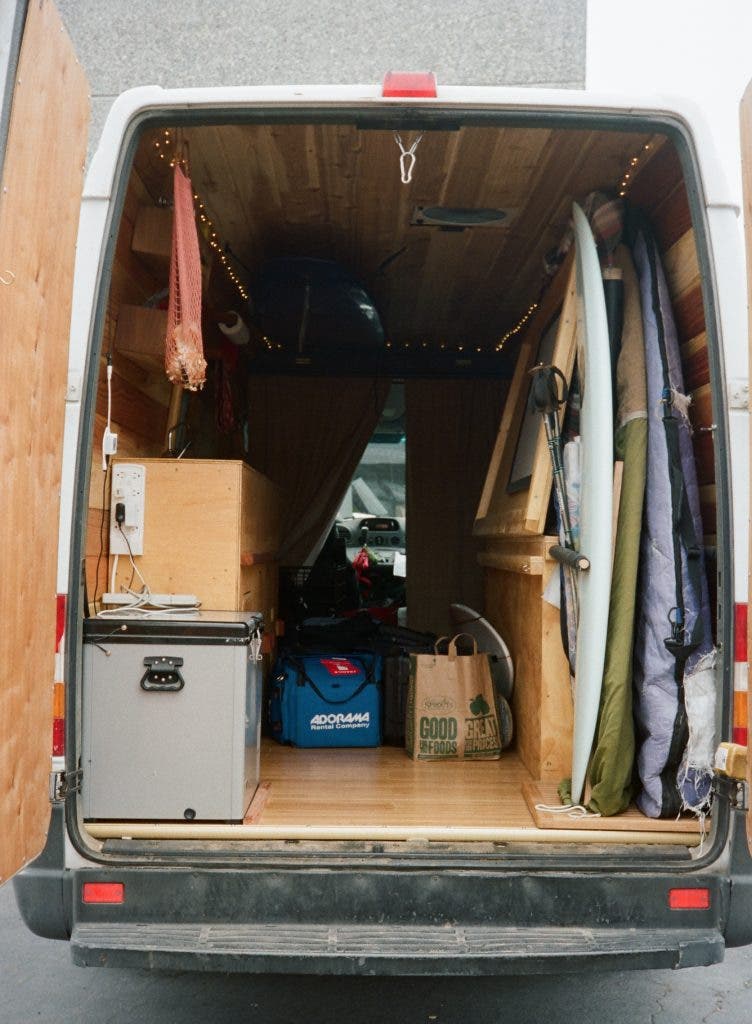
Power
Unless you’re strictly shooting film, power is the most important element to any mobile production studio. There are two main ways to create self-contained power on the road. The first is to use your car’s battery, the second is to use solar. Solar is the best because using just your car’s battery risks draining it. While you can avoid this by installing a backup deep-cycle battery and frequently running your engine, solar allows you to either recharge your car battery (or batteries) or charge designated batteries. Personally, I use two 100 watt panels mounted to my roof, which charge two 100 amp hour deep cycle marine AGM batteries. These batteries are connected in parallel (meaning positive to positive) to ostensibly create one 200 amp hour energy unit which receives energy from a voltage regulator (which protects against overcharging) and flows into an 1500 watt inverter (which converts the 12 volt direct current coming out of the batteries into alternating current (AC) at high enough of volume to power an iMac and external RAID hard drive given I’m receiving adequate sun exposure to my panels. This system isn’t perfect I may install a third 100-watt panel to the roof to provide more power to my batteries on shorter or cloudy/rainy days. Coming out of my inverter, I have an eight-outlet power strip mounted the side of my van’s internal wall. This power strip charges all production equipment batteries (cameras, drone, gimbal, etc.) as well as computers/hard drives.
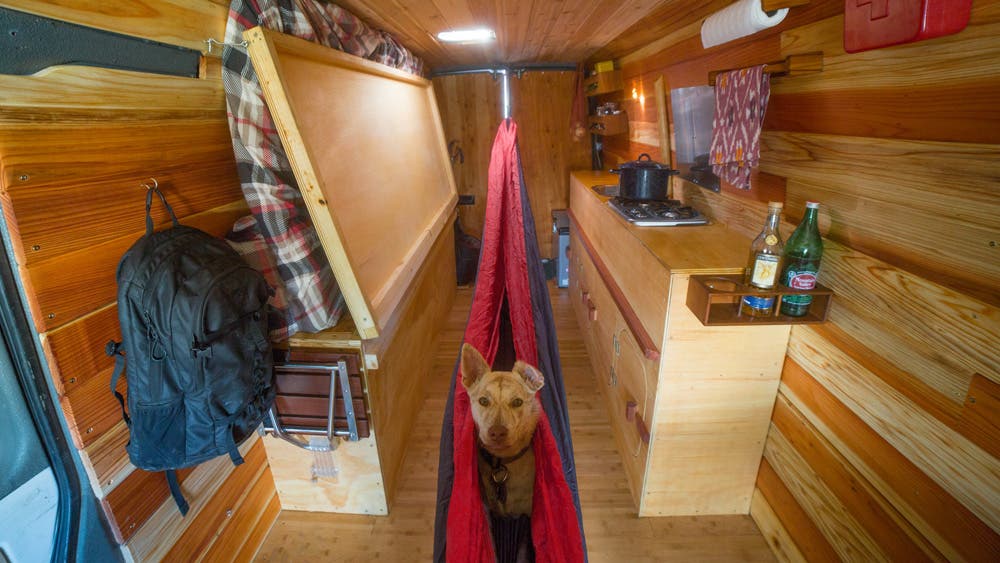
Security
I’ve had all of my production gear ripped off twice while traveling so I know the importance of security while traveling. Because of this I only travel with my most valuable items when I need them and if I do carry them I have a secret steel box welded to the frame of my van. I also have a dog which isn’t big but she’s violent when her space is encroached upon by un-welcomed visitors. Some basic tips about security if you don’t have a dog or custom security case are: keeping your gear out of site at all times (car trunks, window curtains, and heavily tinted window are all helpful in keep your valuables out of sight and out of thief’s minds.)
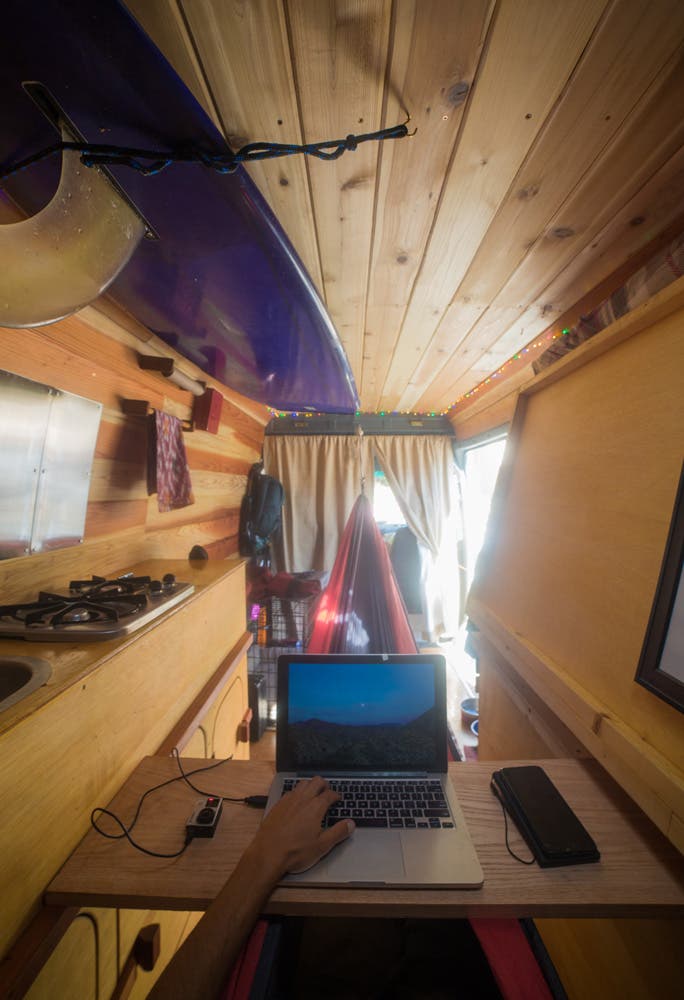
Work Space
For me to get work done I must have a moderate temperature, privacy and a comfortable work space. I use a stove for cold winter days and nights and an electric ceiling fan and vent to suck hot air and create circulation in the summer. For privacy, I’ve installed blackout curtains and prefer windowless vans. For comfort, I’ve tried a lot of things over the years. I’m generally not a fan of chairs. For the past eight years, I’ve avoided them at all costs. For a long time, I lay on my stomach on a thin pad and prop my chest up on multiple firm pillows. I’m an athlete and I feel this position helps strengthen my core and back. But this is definitely not for everyone or even most people. My setup today features a few options that I cycle through to keep it fresh. I have two high counter tops which I sometimes use as standing desks for quick photo edits and emails. I also have a piece of oak shelving which is about hip high that I can access by sitting on an exercise ball or laying in my hammock. Both are very comfortable and I can work for multiple hours in these positions.
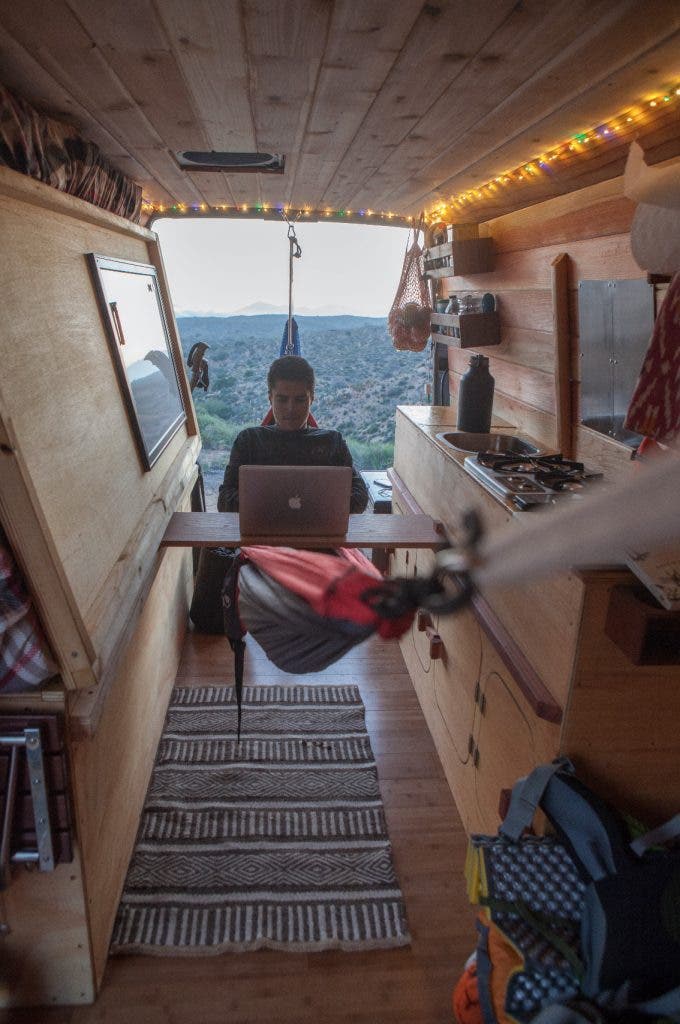
Connection
Internet access is often crucial (although sometimes counter-productive) and I solve this problem by parking close to places with strong wifi or tethering from my phone. I have a high data plan with cell service provider Verizon which isn’t cheap but is well worth it.
You can follow more of Cyrus’ travels on his Instagram @cyrus_sutton
